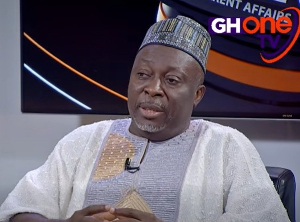Not all destructive relationships are as obvious others appear. Read on to know if your own relationship qualifies, and what you should do about it.
There is an unwritten covenant between most couples that whatever happens at home stays at home. Hence, the smiling faces you see in public or splashed all over social media may well reflect the true happiness they have found together. It could equally be the case they are hiding something far more sinister. And that includes some types of destructive relationships.
The victims
Destructiveness within a relationship is not an uncommon problem and is rife in all parts of the world. A quick scan through the internet enlightens the scale of the issue and who the victims are. A victim of destructiveness within a relationship can be either gender.
Of course, women tend to bear the brunt of this due to the larger physical size of men, but men suffer also. The occurrence of male-focused relationship abuse is something many societies are starting to make the effort to change.
How can you know if a relationship is destructive?
When it comes to stereotypes around destructive relationships, it’s not just the genders that are the focus of false expectation. The forms of destructiveness existing in a relationship are also far more diverse than people commonly give them credit for.
In some ways, the less outwardly violent forms of abuse are worse than the more physical forms. They remain less apparent and, by the same token, more difficult to detect and/or prove. But they are equally as harmful.
Destructiveness of any kind should never be tolerated. There are those who tell you a relationship suffering any kind of destructiveness should immediately be dissolved without hesitation or consideration. Others say, especially those within such a relationship, that destructiveness can be worked through no matter what kind or how long it’s been going on.
However, if you discover while reading this piece that you are in a destructive relationship, then make no mistake about it—action must be taken. What that action might be is for you to decide.
4 types of destructive relationship
Below are the four types of destructive relationships and the actions to get out of such a relationship.
#1 Physical. Physical destructiveness is the form of destructiveness that initially springs to the mind of most people whenever the word abuse is used. However, even this most brutal and simplistic form of destructiveness is open to subtle shades of interpretation. Yes, any form of physical harm classes as physical destructiveness. But the THREAT of force is equally as abusive.
If a well-built guy more suited to playing rugby than games of passion stands cornering a woman half his size, his mass looming over her and cutting off her escape, this is also destructive. It threatens the woman and leaves her in no doubt as to what kind of physical force her partner can use should he wish to.
The answer: Physical destructiveness is unacceptable. At the first bruise or break, start seeking the help of others, whether through a personal or professional route. Extract yourself from an environment that is toxic.
#2 Sexual. The 21st century made a point of marking out institutionalized sexual destructiveness, such as rape or sexual assault.
Of course, many people identify sexual destructiveness as belonging to environments outside of the home. However, many countries around the world now have laws to protect women within the home. Also, giving them the legal right to choose when and where they have sex, even with their own husbands and partners. And rightly so.
No means no. This applies at all times to all people. A marriage certificate is not a license to commit rape. If you are having sex forced upon you by a partner, then don’t doubt it for a moment. You face sexual destructiveness.
The answer: In certain nations, women are not protected in the way described above, and some may consider this a relevant defense of their actions. However, we live in a world community, with access to all sorts of information and fairly common standards governing such things. If you feel you can talk this through with your partner and resolve the issue, then that is your choice.
However, the most obvious piece of advice we give is this: if your partner has so little respect for your body, then it’s unlikely they have respect for you. Get yourself out of the relationship as soon as possible.
#4 Mental and emotional. This covers so much ground it’s impossible to know where to start. Emotional destructiveness varies. From the mildly unsettling to the violently dehumanizing. Often, it stems from mental and/or emotional health issues on the offender’s behalf, but this is no excuse.
Emotional blackmail of any kind, undermining your aspirations and skills, attempting to control and run your life for you, isolating you from outside life, excessive jealousy, invasion of your privacy—any of these things count as mental or emotional destructiveness. Even more so if working in tandem with one or more of the other forms of abuse.
It can often be difficult to be clear in your mind on whether or not you are experiencing this abuse. As the perpetrators do it in a very logical, calm, and insidious way. Make no mistake, whatever the manner in which it materializes, this IS destructive abuse and needs to be addressed.
The answer: It may be possible to talk through some of these issues with your loved one, if it’s not too extreme. You may be able to get to the bottom of what causes their behavior with professional help. If the destructiveness compounds and continues to such an extent that you can see no escape from it, then that is precisely the point when you should try.
Seek solace in the company of people you trust. Tell them your concerns. Having other people comfort you when your significant other is intent on mentally breaking you can be a way to help you realize that this abusive behavior is unacceptable. It is right for you to walk away.
Entertainment of Thursday, 16 March 2017
Source: lovepanky.com













